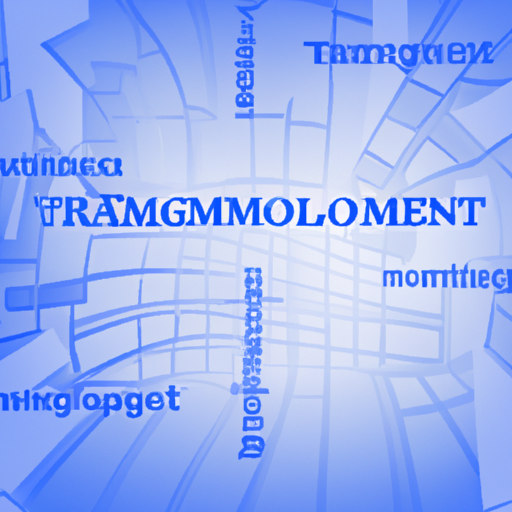-
LucksCasino.com Online - Live Casino ,Blackjack, Roulette, Slots, Telephone Gambling & Bets: Professional Article Sequence
- Introduction
- The Importance of Technology Management in Business
- Best Practices for Implementing Technology Management Strategies
- The Role of Technology Management in Digital Transformation
- How to Build a Successful Technology Management Team
- The Future of Technology Management: Trends and Predictions
- The Benefits of Outsourcing Technology Management Services
- Common Challenges in Technology Management and How to Overcome Them
- The Impact of Cloud Computing on Technology Management
- Cybersecurity and Risk Management in Technology
- Agile Methodologies for Technology Management Projects
- Measuring the ROI of Technology Management Investments
- Integrating Emerging Technologies into Your Technology Management Strategy
- Effective Communication Strategies for Technology Managers
- Q&A
- Conclusion
"Empowering companies to thrive in the digital age."
Introduction
Technology administration is the method of planning, organizing, and controlling technological resources in a corporation to realize its targets. It includes the appliance of information, abilities, and strategies to handle expertise successfully. The sector of expertise administration encompasses a variety of actions, together with analysis and growth, innovation administration, challenge administration, and strategic planning. Efficient expertise administration can help organizations keep aggressive in right now's quickly altering enterprise atmosphere.
The Significance of Technology Management in Enterprise
Technology has develop into an integral a part of fashionable-day companies. It has revolutionized the way in which corporations function, talk, and work together with their prospects. As expertise continues to evolve at a speedy tempo, it is important for companies to have a sturdy expertise administration technique in place.
Technology administration refers back to the means of planning, implementing, and sustaining expertise systems and infrastructure inside a corporation. It includes managing {hardware}, software, networks, information storage, security, and other technological resources. Efficient expertise administration can help companies enhance their operations, improve productiveness, cut back prices, and improve buyer satisfaction.
One of many main advantages of expertise administration is improved effectivity. By automating routine duties and streamlining processes by way of expertise, companies can save time and resources. For instance, utilizing buyer relationship administration (CRM) software can help corporations handle buyer interactions more effectively by offering a centralized database for buyer information. This can result in quicker response times and higher customer service.
One other good thing about expertise administration is elevated productiveness. Technology tools comparable to challenge administration software can help groups collaborate more successfully on tasks by offering real-time updates on progress and deadlines. This can result in quicker completion times and better high quality work.
Along with enhancing effectivity and productiveness, efficient expertise administration can additionally help companies cut back prices. By implementing value-efficient applied sciences comparable to cloud computing or virtualization, corporations can cut back {hardware} prices whereas rising scalability and adaptability. Moreover, by utilizing information analytics tools to investigate enterprise operations and establish areas for enchancment, corporations can make knowledgeable selections that result in value financial savings.
Maybe most significantly, efficient expertise administration can improve buyer satisfaction. In right now's digital age, prospects count on companies to be accessible by way of a number of channels comparable to email, social media, chatbots or mobile apps. By leveraging expertise tools comparable to chatbots or self-service portals that present 24/7 support or personalised suggestions based mostly on previous purchases or shopping historical past; corporations can present a seamless experience that meets prospects' needs.
Nevertheless, managing expertise successfully requires experience in numerous areas comparable to cybersecurity risk evaluation or information privateness rules compliance which may not be obtainable in-house for a lot of small-to-medium-sized enterprises (SMEs). Due to this fact outsourcing IT providers from specialised suppliers may very well be a viable possibility for SMEs who wish to concentrate on their core enterprise actions whereas making certain their IT infrastructure is secure and up-to-date.
In conclusion, efficient expertise administration is essential for companies trying to keep aggressive in right now's digital panorama. By implementing a sturdy technique that features planning for future technological developments whereas making certain present systems are secure and environment friendly; corporations can reap the advantages of elevated effectivity productiveness decreased prices whereas enhancing buyer satisfaction. Whether or not it is by way of in-house experience or outsourcing IT providers from specialised suppliers; investing in expertise administration is an funding in the longer term success of any enterprise.
Greatest Practices for Implementing Technology Management Methods
Technology has develop into an integral a part of fashionable companies, and managing it successfully is essential for achievement. Technology administration includes the planning, implementation, and upkeep of expertise systems to support enterprise operations. On this article, we'll focus on some finest practices for implementing expertise administration methods.
1. Outline your expertise targets
Earlier than implementing any expertise administration technique, it is important to outline your expertise targets. What do you wish to obtain together with your expertise systems? Do you wish to enhance effectivity, cut back prices, or improve buyer experience? Defining your targets will help you select the suitable expertise options that align with your corporation goals.
2. Conduct a expertise audit
A expertise audit includes assessing your present expertise systems and figuring out areas that want enchancment. It helps you perceive the strengths and weaknesses of your present systems and establish alternatives for enchancment. An intensive expertise audit can help you make knowledgeable selections about which applied sciences to speculate in and the way to prioritize them.
3. Develop a expertise roadmap
A expertise roadmap is a strategic plan that outlines how you'll implement new applied sciences over time. It helps you prioritize investments and ensure that new applied sciences align with your corporation goals. A nicely-developed roadmap ought to include timelines, budgets, and key efficiency indicators (KPIs) to measure progress.
4. Contain stakeholders in choice-making
Technology selections shouldn't be made in isolation; they need to contain all stakeholders who can be affected by the adjustments. This contains staff, prospects, distributors, and companions. Involving stakeholders in choice-making ensures that everybody's needs are thought of and will increase purchase-in for brand spanking new applied sciences.
5. Make investments in coaching and support
Implementing new applied sciences requires coaching staff on the way to use them successfully. Investing in coaching ensures that staff can use new applied sciences effectively and reduces the risk of errors or downtime attributable to consumer error. Moreover, offering ongoing support ensures that staff have entry to help after they want it.
6. Monitor efficiency metrics
Monitoring efficiency metrics is important for evaluating the effectiveness of your expertise administration methods. Key efficiency indicators (KPIs) comparable to uptime, response time, and consumer satisfaction can help you establish areas that want enchancment and measure progress in direction of reaching your targets.
7. Repeatedly consider and modify
Technology is continuously evolving, so it is important to constantly consider your systems' effectiveness and modify as wanted. Repeatedly reviewing efficiency metrics can help you establish areas for enchancment or alternatives for innovation.
In conclusion, efficient expertise administration requires cautious planning, implementation, monitoring, and analysis of systems over time. By following these finest practices for implementing expertise administration methods, companies can ensure that their investments in expertise align with their goals and ship measurable outcomes over time.
The Function of Technology Management in Digital Transformation
Technology has develop into an integral a part of our lives, and it is remodeling the way in which we live, work, and work together with every other. Digital transformation is the method of utilizing expertise to enhance enterprise operations, improve buyer experience, and create new income streams. Technology administration performs a vital position in digital transformation by making certain that organizations have the suitable expertise infrastructure, processes, and other people to realize their targets.
The position of expertise administration in digital transformation is multifaceted. It includes figuring out the suitable applied sciences that can help organizations obtain their goals, implementing these applied sciences successfully, and managing them effectively. Technology managers have to have a deep understanding of the enterprise needs and targets of their group to establish the suitable applied sciences that can help them obtain their goals.
As soon as the suitable applied sciences have been recognized, expertise managers have to ensure that they're carried out successfully. This includes creating a complete implementation plan that takes under consideration all elements of the expertise deployment course of, together with {hardware} and software set up, information migration, consumer coaching, and alter administration. Efficient implementation is vital to making sure that the expertise delivers its meant advantages and doesn't disrupt present enterprise operations.
Managing expertise successfully is additionally important for digital transformation success. This includes monitoring the efficiency of expertise systems usually, figuring out points or potential issues earlier than they develop into vital, and taking corrective motion promptly. Technology managers have to ensure that their group's expertise infrastructure is secure, dependable, scalable, and versatile sufficient to satisfy altering enterprise needs.
One of many key challenges dealing with expertise managers in digital transformation is maintaining with quickly evolving applied sciences. New applied sciences are rising on a regular basis, and it can be difficult to find out which of them are related to a corporation's needs. Technology managers want to remain up-to-date with technological developments by attending conferences and seminars, studying industry publications, networking with friends in their discipline, and collaborating with distributors.
One other problem dealing with expertise managers in digital transformation is managing information successfully. Knowledge is on the coronary heart of digital transformation initiatives because it offers insights into buyer conduct patterns and helps organizations make knowledgeable selections. Nevertheless, managing information can be complicated because it includes amassing information from a number of sources, storing it securely, analyzing it successfully, and utilizing it to drive enterprise outcomes.
To beat these challenges efficiently, expertise managers have to undertake a strategic strategy to expertise administration. This includes aligning expertise investments with enterprise goals and creating a roadmap for reaching these goals by way of expertise deployment. A strategic strategy additionally includes constructing sturdy partnerships with distributors who can present experience in particular areas comparable to cloud computing or cybersecurity.
In conclusion, expertise administration performs a vital position in digital transformation by making certain that organizations have the suitable infrastructure, processes, and other people in place to realize their targets. The position of expertise administration contains figuring out related applied sciences for a corporation's needs; implementing them successfully; managing them effectively; staying up-to-date with technological developments; managing information successfully; adopting a strategic strategy; constructing sturdy partnerships with distributors; amongst others. By adopting a strategic strategy to expertise administration and partnering with distributors who can present experience in particular areas comparable to cloud computing or cybersecurity will allow organizations to realize profitable digital transformations whereas staying forward of rivals in right now's quick-paced enterprise atmosphere.
How you can Construct a Profitable Technology Management Team
Technology has develop into an integral a part of each enterprise, and managing it successfully is essential for achievement. A expertise administration workforce performs an important position in making certain that the corporate's technological infrastructure is up-to-date, secure, and environment friendly. Constructing a profitable expertise administration workforce requires cautious planning and execution. On this article, we'll focus on some important steps to help you construct a profitable expertise administration workforce.
1. Outline Your Technology Management Objectives
Step one in constructing a profitable expertise administration workforce is to outline your targets. What would you like your expertise administration workforce to realize? Would you like them to concentrate on enhancing the corporate's technological infrastructure or creating new merchandise? After you have outlined your targets, you can begin constructing your workforce.
2. Determine the Skills You Need
The subsequent step is to establish the abilities you want in your expertise administration workforce. Relying in your targets, you may want specialists in software growth, cybersecurity, information evaluation, or challenge administration. It is important to rent individuals with various abilities and experiences to ensure that your workforce can deal with any problem that comes their manner.
3. Rent the Proper Folks
After you have recognized the abilities you want, it is time to begin hiring the suitable individuals in your workforce. Search for candidates who've experience working in related roles and industries. Conduct thorough interviews and assessments to ensure that they've the required abilities and are a very good match in your firm tradition.
4. Present Coaching and Improvement Alternatives
Technology is continuously evolving, and it is important to supply coaching and growth alternatives in your expertise administration workforce. This can help them keep up-to-date with the latest tendencies and applied sciences in their discipline. Encourage them to attend conferences, workshops, and coaching packages that can improve their abilities.
5. Foster Collaboration
Collaboration is key to constructing a profitable expertise administration workforce. Encourage your workforce members to work collectively on tasks and share their data and experience with every other. This can help them be taught from every other and develop new concepts that can profit the corporate.
6. Set Clear Expectations
It is important to set clear expectations in your expertise administration workforce from the outset. Outline their roles and obligations clearly so that everybody is aware of what they're anticipated to do. Set measurable targets and goals so that you just can observe their progress over time.
7. Present Suggestions Repeatedly
Providing common suggestions is essential for constructing a profitable expertise administration workforce. Schedule common efficiency reviews the place you can present constructive suggestions on their work and offer strategies for enchancment.
8. Acknowledge Achievements
Lastly, it is necessary to acknowledge achievements inside your expertise administration workforce usually. Rejoice successes collectively as a workforce, whether or not it is finishing a challenge on time or reaching a big milestone.
In conclusion, constructing a profitable expertise administration workforce requires cautious planning, hiring the suitable individuals with various abilities, offering coaching alternatives, fostering collaboration amongst workforce members, setting clear expectations, offering common suggestions, and recognizing achievements usually. By following these steps, you can construct a robust expertise administration workforce that can help drive innovation and development inside your group.
The Way forward for Technology Management: Tendencies and Predictions
Technology has been a driving pressure in the world for many years, and it continues to evolve at an unprecedented tempo. As expertise advances, so does the necessity for efficient expertise administration. The position of expertise administration is to ensure that expertise is used effectively and successfully to realize enterprise targets. On this article, we'll discover the way forward for expertise administration, together with tendencies and predictions.
One pattern that is anticipated to form the way forward for expertise administration is the rising use of synthetic intelligence (AI). AI has already made vital strides in numerous industries, together with healthcare, finance, and manufacturing. Within the coming years, AI is anticipated to develop into even more prevalent in companies of all sizes. Which means expertise managers might want to have a deep understanding of AI and its potential functions.
One other pattern that is prone to influence expertise administration is the rise of cloud computing. Cloud computing permits companies to retailer and entry information and functions over the web quite than on native servers or private computer systems. This offers companies with better flexibility and scalability whereas lowering prices. As more companies undertake cloud computing, expertise managers will want to be nicely-versed in cloud applied sciences and their related dangers.
The Web of Issues (IoT) is one other pattern that is anticipated to form the way forward for expertise administration. IoT refers back to the community of bodily units, autos, livence home equipment, and other gadgets embedded with electronics, software, sensors, and connectivity which permits these objects to attach and alternate information. The proliferation of IoT units presents each alternatives and challenges for companies. Technology managers might want to perceive how IoT units can be used successfully whereas additionally managing security dangers related to these units.
Cybersecurity will continue to be a vital concern for companies in the approaching years. With cyber threats turning into more and more subtle, expertise managers should keep up-to-date on rising threats and implement strong security measures. This contains implementing multi-issue authentication protocols, usually updating software systems, conducting common security audits, and offering worker coaching on cybersecurity finest practices.
Lastly, as distant work turns into more prevalent attributable to COVID-19 pandemic restrictions or in any other case; collaboration tools comparable to video conferencing platforms have gotten more and more necessary for companies worldwide. Technology managers should ensure that their organizations have entry to dependable collaboration tools whereas additionally managing potential security dangers related to these platforms.
In conclusion, efficient expertise administration can be vital for companies trying to keep aggressive in an ever-evolving technological panorama. As AI turns into more prevalent in enterprise operations; cloud computing continues its rise; IoT units proliferate; cybersecurity stays a top precedence; collaboration tools develop into important for distant work - it is clear that staying forward of those tendencies would require a deep understanding of rising applied sciences together with efficient risk administration methods. By embracing these tendencies proactively; organizations can place themselves for achievement in an more and more digital world.
The Advantages of Outsourcing Technology Management Providers
Technology has develop into an integral a part of fashionable companies, and its significance can't be overstated. Nevertheless, managing expertise can be a frightening job for a lot of organizations, particularly these with out the required experience or resources. This is the place outsourcing expertise administration providers come in helpful. On this article, we'll discover the advantages of outsourcing expertise administration providers.
Value Financial savings
One of the vital vital advantages of outsourcing expertise administration providers is value financial savings. Outsourcing permits companies to entry specialised experience and resources with out incurring the high prices related to hiring and coaching an in-house workforce. Moreover, outsourcing eliminates the necessity for costly {hardware} and software investments, as service suppliers usually have their very own infrastructure.
Improved Concentrate on Core Enterprise Capabilities
Outsourcing expertise administration providers permits companies to concentrate on their core features whereas leaving the technical elements to specialists. Which means enterprise house owners and managers can focus on rising their enterprise, creating new services or products, and enhancing buyer satisfaction. By outsourcing expertise administration providers, companies can free up priceless time and resources that might in any other case be spent on managing IT infrastructure.
Entry to Specialised Experience
Outsourcing expertise administration providers offers companies with entry to specialised experience that may not be obtainable in-house. Service suppliers have groups of specialists who're skilled and skilled in numerous areas of expertise administration comparable to cybersecurity, community administration, information backup and restoration, amongst others. These specialists keep up-to-date with the latest tendencies and applied sciences in their respective fields, making certain that companies obtain top-notch service.
Elevated Flexibility
Outsourcing expertise administration providers offers companies with elevated flexibility in the case of scaling up or down their IT infrastructure. Service suppliers offer versatile pricing fashions that enable companies to pay just for what they want at any given time. Which means companies can simply modify their IT infrastructure to satisfy altering enterprise needs with out having to fret about investing in new {hardware} or software.
Improved Security
Cybersecurity threats have gotten more and more subtle and frequent, making it important for companies to have strong security measures in place. Outsourcing expertise administration providers offers companies with entry to cybersecurity specialists who can help establish potential vulnerabilities and implement applicable security measures. Service suppliers additionally offer information backup and restoration options that ensure enterprise continuity in case of a cyber assault or other catastrophe.
24/7 Support
Outsourcing expertise administration providers offers companies with 24/7 support from specialists who're at all times obtainable to handle any technical points that may come up. Which means companies can relaxation assured realizing that their IT infrastructure is being monitored across the clock by professionals who're devoted to making sure optimum efficiency.
Conclusion
In conclusion, outsourcing expertise administration providers offers quite a few advantages for companies trying to enhance effectivity, cut back prices, improve flexibility, improve security, and entry specialised experience. By partnering with a good service supplier, companies can concentrate on their core features whereas leaving the technical elements to specialists who're devoted to offering top-notch service.
Frequent Challenges in Technology Management and How you can Overcome Them
Technology has develop into an integral a part of fashionable companies, and its administration is essential for the success of any group. Nevertheless, managing expertise can be difficult attributable to numerous elements comparable to speedy technological developments, restricted resources, and altering enterprise needs. On this article, we'll focus on some widespread challenges in expertise administration and the way to overcome them.
1. Maintaining with Technological Developments
One of many greatest challenges in expertise administration is maintaining with the latest technological developments. Technology is continuously evolving, and new improvements are launched every single day. It can be overwhelming for organizations to maintain up with these adjustments and decide which applied sciences are related to their enterprise needs.
To beat this problem, organizations want to speculate in analysis and growth to remain up to date on the latest technological tendencies. They need to additionally collaborate with expertise distributors and attend industry conferences to realize insights into rising applied sciences that can profit their enterprise.
2. Restricted Sources
One other problem in expertise administration is restricted resources comparable to budget, workers, and infrastructure. Organizations may not have sufficient resources to speculate in costly applied sciences or rent expert IT professionals.
To beat this problem, organizations ought to prioritize their expertise investments based mostly on their enterprise needs and allocate resources accordingly. They need to additionally contemplate outsourcing a few of their IT features to 3rd-celebration service suppliers who can present value-efficient options.
3. Cybersecurity Threats
Cybersecurity threats are a serious concern for organizations that depend on expertise for his or her operations. Cybercriminals have gotten more subtle in their assaults, and organizations have to take proactive measures to guard their information and systems from breaches.
To beat this problem, organizations ought to implement strong cybersecurity measures comparable to firewalls, antivirus software, encryption, and common backups. They need to additionally conduct common security audits and practice staff on cybersecurity finest practices.
4. Resistance to Change
Resistance to vary is a standard problem in expertise administration as staff may be immune to adopting new applied sciences or processes. This resistance can result in delays in implementing new applied sciences and even failure of expertise tasks.
To beat this problem, organizations ought to contain staff in the choice-making course of when introducing new applied sciences or processes. They need to additionally present satisfactory coaching and support to help staff adapt to the adjustments.
5. Integration Points
Integrating totally different applied sciences can be a fancy course of that requires cautious planning and execution. Organizations may face integration points when attempting to combine totally different systems or functions.
To beat this problem, organizations ought to develop a complete integration plan that outlines the steps concerned in integrating totally different applied sciences. They need to additionally check the combination completely earlier than deploying it in manufacturing environments.
In conclusion, managing expertise can be difficult attributable to numerous elements comparable to speedy technological developments, restricted resources, cybersecurity threats, resistance to vary, and integration points. Nevertheless, by investing in analysis and growth, prioritizing investments based mostly on enterprise needs, implementing strong cybersecurity measures, involving staff in choice-making processes, offering satisfactory coaching and support for workers adapting new adjustments whereas creating complete integration plans; organizations can overcome these challenges successfully and ensure profitable expertise administration that helps enterprise development over time.
The Impression of Cloud Computing on Technology Management
Technology Management
The Impression of Cloud Computing on Technology Management
Cloud computing has revolutionized the way in which companies function. It has remodeled the standard IT infrastructure right into a more versatile and scalable mannequin that can adapt to the altering needs of companies. Cloud computing has additionally had a big influence on expertise administration, enabling organizations to handle their expertise resources more effectively and successfully.
One of the vital vital impacts of cloud computing on expertise administration is the power to cut back prices. With cloud computing, companies not want to speculate in costly {hardware} and software infrastructure. As an alternative, they can use cloud-based mostly providers which might be offered by third-celebration distributors. This eliminates the necessity for companies to keep up their very own IT infrastructure, which can be expensive and time-consuming.
One other good thing about cloud computing is its scalability. Companies can simply scale up or down their expertise resources based mostly on their needs. Which means they can rapidly reply to adjustments in demand with out having to speculate in further {hardware} or software. This flexibility permits companies to be more agile and responsive, which is important in right now's quick-paced enterprise atmosphere.
Cloud computing additionally offers companies with better accessibility and mobility. With cloud-based mostly providers, staff can entry information and functions from anyplace at any time utilizing any machine with an web connection. Which means staff can work remotely or on-the-go, which can improve productiveness and effectivity.
Nevertheless, with these advantages come some challenges for expertise administration. One of many greatest challenges is security. Cloud computing requires companies to entrust their information and functions to 3rd-celebration distributors who may not have the identical stage of security because the enterprise itself. Which means companies should ensure that their information is secure by implementing applicable security measures comparable to encryption, firewalls, and entry controls.
One other problem is vendor lock-in. As soon as a enterprise has invested in a specific cloud-based mostly service, it may be tough or expensive to change to a different supplier. Which means companies should rigorously consider potential distributors earlier than committing to a specific service.
As well as, there are considerations about information privateness and compliance with rules comparable to GDPR (Common Knowledge Safety Regulation) and HIPAA (Well being Insurance coverage Portability and Accountability Act). Companies should ensure that they adjust to these rules when utilizing cloud-based mostly providers.
To deal with these challenges, companies should have a complete expertise administration technique that features risk evaluation, vendor analysis, security measures, compliance monitoring, and catastrophe restoration planning.
In conclusion, cloud computing has had a big influence on expertise administration by offering companies with value financial savings, scalability, accessibility, and mobility. Nevertheless, it additionally presents challenges comparable to security dangers, vendor lock-in, and compliance points. To successfully handle these challenges, companies should have a complete expertise administration technique that addresses these points whereas leveraging the advantages of cloud computing.
Cybersecurity and Danger Management in Technology
Technology Management
In right now's digital age, expertise has develop into an integral a part of our lives. From smartphones to laptops, we depend on expertise for nearly every little thing. Nevertheless, with the rising use of expertise comes the risk of cyber threats and security breaches. This is the place cybersecurity and risk administration in expertise come into play.
Cybersecurity refers back to the safety of pc systems and networks from theft, harm, or unauthorized entry. It includes a variety of practices and applied sciences designed to safeguard digital information from cyber assaults. Cyber threats can come in numerous types comparable to viruses, malware, phishing scams, and ransomware assaults.
To ensure efficient cybersecurity, organizations have to implement a complete security technique that features common software updates, sturdy passwords, firewalls, antivirus software, and worker coaching packages. It is additionally important to conduct common security audits to establish vulnerabilities and handle them promptly.
Danger administration in expertise includes figuring out potential dangers related to the usage of expertise and implementing measures to mitigate these dangers. This contains assessing the influence of potential threats on enterprise operations and creating contingency plans to reduce disruption in case of a security breach.
One vital facet of risk administration is information backup and restoration. Organizations should have a sturdy backup system in place to ensure that vital information is not misplaced in case of a cyber assault or system failure. Common testing of backup systems is additionally essential to ensure their effectiveness.
One other necessary facet of risk administration is compliance with regulatory necessities comparable to GDPR (Common Knowledge Safety Regulation) and HIPAA (Well being Insurance coverage Portability and Accountability Act). Failure to adjust to these rules can consequence in extreme penalties and reputational harm.
Efficient cybersecurity and risk administration require collaboration between IT professionals, enterprise leaders, and staff. IT professionals should keep up-to-date with the latest security tendencies and applied sciences whereas enterprise leaders should present satisfactory resources for cybersecurity initiatives. Staff should even be skilled on finest practices for online security comparable to avoiding suspicious emails or hyperlinks.
In conclusion, cybersecurity and risk administration are vital parts of expertise administration in right now's digital age. Organizations should take proactive measures to guard their digital property from cyber threats whereas additionally mitigating potential dangers related to the usage of expertise. By implementing complete security methods and collaborating throughout departments, organizations can ensure that they're nicely-ready for any potential security breaches or disruptions attributable to technological failures.
Agile Methodologies for Technology Management Initiatives
Technology Management
Agile Methodologies for Technology Management Initiatives
In right now's quick-paced enterprise atmosphere, expertise administration has develop into a vital facet of organizational success. With the speedy tempo of technological developments, organizations should have the ability to adapt rapidly to remain forward of the competitors. Agile methodologies have emerged as a well-liked strategy to managing expertise tasks attributable to their flexibility and talent to reply rapidly to altering necessities.
Agile methodologies are based mostly on the rules outlined in the Agile Manifesto, which emphasizes collaboration, flexibility, and buyer satisfaction. The purpose of agile methodologies is to ship high-high quality services or products that meet buyer needs whereas minimizing waste and maximizing effectivity.
One of many key advantages of agile methodologies is their means to adapt rapidly to altering necessities. Conventional challenge administration approaches depend on detailed planning and documentation, which can be time-consuming and rigid. In distinction, agile methodologies concentrate on delivering working software or merchandise in quick iterations, permitting groups to reply rapidly to adjustments in buyer needs or market situations.
One other good thing about agile methodologies is their emphasis on collaboration and communication. Agile groups work intently collectively all through the challenge lifecycle, with common conferences and suggestions classes to ensure that everybody is aligned on challenge targets and priorities. This collaborative strategy helps to construct belief amongst workforce members and fosters a tradition of steady enchancment.
There are a number of totally different agile methodologies that can be used for expertise administration tasks, together with Scrum, Kanban, and Lean. Every methodology has its personal distinctive set of rules and practices, however all of them share a standard concentrate on delivering worth rapidly and effectively.
Scrum is one of the in style agile methodologies for expertise administration tasks. It is based mostly on a framework that features particular roles (comparable to product proprietor, scrum grasp, and growth workforce), occasions (comparable to dash planning conferences and each day stand-ups), and artifacts (comparable to product backlogs and dash backlogs). Scrum emphasizes iterative growth cycles (referred to as sprints) that usually final two weeks or much less.
Kanban is one other in style agile methodology that focuses on visualizing work in progress (WIP) utilizing a kanban board. The board usually consists of columns representing totally different levels in the event course of (comparable to backlog, evaluation, growth, testing, and deployment). Playing cards representing particular person duties or consumer tales are moved throughout the board as they progress by way of every stage.
Lean is an agile methodology that originated in manufacturing however has since been tailored for software growth. It emphasizes eliminating waste (comparable to pointless features or processes) and maximizing worth for purchasers. Lean groups use strategies comparable to worth stream mapping and steady enchancment to establish areas the place they can streamline processes and enhance effectivity.
No matter which agile methodology you select in your expertise administration challenge, there are a number of finest practices that can help ensure success:
- Begin with a transparent understanding of buyer needs: Agile methodologies emphasize delivering worth rapidly to prospects. To do that successfully, you want a deep understanding of what your prospects need and want.
- Construct cross-practical groups: Agile groups ought to include members with various abilities and views who can work collectively collaboratively.
- Emphasize communication: Common communication amongst workforce members is vital for making certain alignment on challenge targets and priorities.
- Use metrics to trace progress: Agile methodologies rely closely on information-pushed choice making. Use metrics comparable to velocity (the quantity of labor accomplished per dash) or lead time (the time it takes from beginning work on a job till it is accomplished) to trace progress over time.
- Repeatedly enhance: Agile methodologies emphasize steady enchancment by way of common retrospectives (conferences the place workforce members replicate on what went nicely in the course of the earlier dash/iteration and what may very well be improved).
In conclusion, agile methodologies have develop into an more and more in style strategy for managing expertise tasks attributable to their flexibility, emphasis on collaboration, and talent to reply rapidly to altering necessities. By following finest practices comparable to beginning with a transparent understanding of buyer needs, constructing cross-practical groups, emphasizing communication, utilizing metrics to trace progress, and constantly enhancing processes over time, organizations can efficiently implement agile methodologies for his or her expertise administration tasks.
Measuring the ROI of Technology Management Investments
Technology has develop into an integral a part of fashionable enterprise operations. From communication to information administration, expertise performs a vital position in enhancing effectivity and productiveness. Nevertheless, investing in expertise administration can be expensive, and companies have to measure the return on funding (ROI) to justify the expenditure.
Measuring the ROI of expertise administration investments includes evaluating the advantages derived from implementing new applied sciences towards the prices incurred. The ROI calculation helps companies decide whether or not their funding in expertise administration is price it or not.
One technique to measure the ROI of expertise administration investments is by assessing the influence on productiveness. Technology can automate repetitive duties, cut back errors, and enhance workflow processes. By streamlining operations, companies can save time and improve output. As an illustration, implementing a buyer relationship administration (CRM) system can help gross sales groups handle leads more effectively, ensuing in elevated gross sales income.
One other technique to measure ROI is by analyzing value financial savings. Technology can help companies cut back prices by eliminating handbook processes and lowering labor prices. For instance, implementing an enterprise resource planning (ERP) system can help companies handle stock ranges more successfully, lowering waste and reducing storage prices.
Moreover, expertise can improve buyer satisfaction by enhancing service supply. As an illustration, implementing a chatbot on a website can present prospects with on the spot responses to their queries, enhancing their experience with the model. Glad prospects are more prone to develop into repeat prospects and advocate the model to others.
Along with these advantages, investing in expertise administration can additionally enhance information security. Cybersecurity threats have gotten more and more subtle and frequent, making it important for companies to guard their information from breaches. Implementing security measures comparable to firewalls and encryption software can help forestall unauthorized entry to delicate information.
Nevertheless, measuring the ROI of expertise administration investments is not at all times easy. Some advantages may be intangible or tough to quantify. As an illustration, implementing a brand new challenge administration device may enhance collaboration amongst workforce members however may not consequence in fast value financial savings or income development.
To beat this problem, companies want to determine clear goals earlier than investing in expertise administration. Aims ought to be particular, measurable, achievable, related, and time-certain (SMART). By setting SMART goals, companies can observe progress in direction of reaching their targets and consider whether or not their funding in expertise administration is delivering the specified outcomes.
Furthermore, companies want to think about the full value of possession (TCO) when measuring ROI. TCO contains not solely the preliminary buy value but in addition ongoing upkeep prices comparable to upgrades and coaching bills. By factoring in TCO when calculating ROI, companies can make knowledgeable selections about whether or not investing in expertise administration is financially viable over the long run.
In conclusion, measuring the ROI of expertise administration investments is important for companies trying to justify their expenditure on new applied sciences. By assessing productiveness beneficial properties, value financial savings, buyer satisfaction enhancements, information security enhancements and establishing clear goals which might be SMART-based mostly whereas contemplating TCOs; corporations will have the ability to decide whether or not their funding in expertise administration is delivering worth for money over time or not. Finally it will allow them make knowledgeable selections about future investments that can profit each themselves in addition to their prospects alike whereas maintaining them forward of competitors inside their respective industries.
Integrating Rising Applied sciences into Your Technology Management Technique
Technology Management: Integrating Rising Applied sciences into Your Technology Management Technique
In right now's quick-paced enterprise atmosphere, expertise is a vital part of any group's success. As new applied sciences emerge, it is important for companies to combine them into their expertise administration technique to remain aggressive and meet the needs of their prospects.
One of the vital vital challenges dealing with organizations right now is the way to handle rising applied sciences successfully. With so many new applied sciences being launched every single day, it can be difficult to find out which of them are price investing in and which of them usually are not.
To successfully handle rising applied sciences, organizations should first perceive their potential influence on their enterprise. This requires a radical evaluation of the expertise's capabilities and the way it can be used to enhance enterprise processes, improve effectivity, and improve buyer experiences.
As soon as a corporation has recognized the potential advantages of a specific expertise, they need to then develop a plan for integrating it into their present expertise administration technique. This includes figuring out the required resources, comparable to {hardware} and software, in addition to coaching staff on the way to use the brand new expertise successfully.
It is additionally important for organizations to think about the potential dangers related to integrating new applied sciences into their operations. This contains points comparable to information security, privateness considerations, and regulatory compliance. To mitigate these dangers, organizations should develop strong insurance policies and procedures that handle these points proactively.
One other vital issue in efficiently integrating rising applied sciences right into a expertise administration technique is collaboration. This includes working intently with distributors and other stakeholders to ensure that the expertise is carried out accurately and that every one events concerned are aligned with the group's targets.
Lastly, organizations should constantly monitor and consider the effectiveness of their expertise administration technique. This includes usually reviewing efficiency metrics and making changes as wanted to ensure that the group is getting essentially the most out of its funding in rising applied sciences.
In conclusion, integrating rising applied sciences right into a expertise administration technique is important for organizations trying to keep aggressive in right now's quick-paced enterprise atmosphere. By understanding the potential influence of latest applied sciences on their enterprise processes and creating a complete plan for integration, organizations can reap vital advantages whereas mitigating potential dangers. Collaboration with distributors and other stakeholders is additionally vital in making certain profitable implementation, whereas ongoing monitoring and analysis help ensure that the group continues to get most worth from its funding in rising applied sciences.
Efficient Communication Methods for Technology Managers
Efficient Communication Methods for Technology Managers
In right now's quick-paced enterprise atmosphere, expertise managers play a vital position in making certain that their organizations live aggressive and revolutionary. Nevertheless, managing expertise is not nearly implementing the latest software or {hardware}; it additionally includes efficient communication with stakeholders, together with staff, prospects, and distributors.
One of the vital necessary communication methods for expertise managers is to determine clear targets and goals. This implies defining what the group hopes to realize by way of its expertise initiatives and speaking these targets to all stakeholders. By doing so, expertise managers can ensure that everybody is working in direction of the identical goals and that resources are being allotted appropriately.
One other key communication technique for expertise managers is to construct sturdy relationships with stakeholders. This contains creating open strains of communication with staff, prospects, and distributors. By doing so, expertise managers can achieve priceless insights into how their expertise initiatives are being obtained and can make changes as wanted.
Along with constructing relationships with stakeholders, expertise managers should additionally have the ability to talk technical information in a manner that is simply understood by non-technical stakeholders. This implies avoiding technical jargon and utilizing plain language to elucidate complicated ideas. By doing so, expertise managers can ensure that everybody understands the advantages of their initiatives and can work collectively in direction of reaching widespread targets.
One other necessary communication technique for expertise managers is to be proactive in addressing potential points or considerations. This implies anticipating potential issues earlier than they come up and speaking with stakeholders about how these points can be addressed. By doing so, expertise managers can construct belief with stakeholders and show their dedication to delivering high-high quality options.
Lastly, efficient communication for expertise managers additionally includes being clear about challenge timelines, budgets, and outcomes. This implies offering common updates on progress in direction of targets and being trustworthy about any challenges or setbacks that may come up. By doing so, expertise managers can construct belief with stakeholders and show their dedication to delivering outcomes.
In conclusion, efficient communication methods are important for expertise managers who wish to succeed in right now's quick-paced enterprise atmosphere. By establishing clear targets and goals, constructing sturdy relationships with stakeholders, speaking technical information in plain language, being proactive in addressing potential points or considerations, and being clear about challenge timelines and outcomes, expertise managers can ensure that their organizations live aggressive and revolutionary.
Q&A
1. What is expertise administration?
- Technology administration is the method of planning, organizing, and controlling technological resources in a corporation to realize its targets.
2. What are the important thing obligations of a expertise supervisor?
- A expertise supervisor is responsible for overseeing the event, implementation, and upkeep of expertise systems and infrastructure in a corporation.
3. What are some widespread challenges confronted by expertise managers?
- Some widespread challenges confronted by expertise managers include maintaining with quickly altering applied sciences, managing budgets and resources successfully, and making certain information security and privateness.
4. How can expertise administration help organizations obtain their targets?
- Technology administration can help organizations obtain their targets by enhancing effectivity, lowering prices, rising productiveness, enhancing buyer experience, and enabling innovation.
5. What are some necessary abilities for a expertise supervisor to have?
- Vital abilities for a expertise supervisor include technical experience, challenge administration abilities, communication abilities, management skills, and strategic considering.
6. How can organizations keep up-to-date with new applied sciences?
- Organizations can keep up-to-date with new applied sciences by investing in analysis and growth, attending industry conferences and occasions, collaborating with other organizations and specialists in the sector, and leveraging online resources comparable to blogs and boards.
7. What is the position of knowledge analytics in expertise administration?
- Knowledge analytics performs a vital position in expertise administration by offering insights into how expertise systems are performing and figuring out areas for enchancment.
8. How can organizations ensure information security in their technological systems?
- Organizations can ensure information security in their technological systems by implementing sturdy security protocols comparable to encryption, entry controls, firewalls, and common system updates.
9. What is the significance of consumer experience (UX) design in expertise administration?
- UX design is necessary in expertise administration as a result of it helps ensure that technological systems are consumer-pleasant and meet the needs of customers.
10. How can organizations foster innovation by way of expertise administration?
- Organizations can foster innovation by way of expertise administration by encouraging experimentation with new applied sciences, making a tradition of innovation inside the group, and investing in analysis and growth.
11. What are some rising applied sciences that would influence expertise administration in the longer term?
- Some rising applied sciences that would influence expertise administration in the longer term include synthetic intelligence (AI), blockchain, digital actuality (VR), augmented actuality (AR), 5G networks, and quantum computing.
12. How can organizations stability the necessity for innovation with the necessity for stability in their technological systems?
- Organizations can stability the necessity for innovation with the necessity for stability by implementing agile growth methodologies that enable for speedy iteration whereas additionally sustaining secure core systems.
13. What is the longer term outlook for careers in expertise administration?
- The longer term outlook for careers in expertise administration is constructive attributable to continued development in demand for expert professionals who can handle complicated technological systems successfully.
Conclusion
Conclusion: Technology administration is a vital facet of any group that goals to remain aggressive and related in right now's quick-paced enterprise atmosphere. It includes the strategic planning, implementation, and upkeep of expertise systems and processes to realize organizational targets. Efficient expertise administration requires a deep understanding of the latest technological developments, in addition to the power to align them with enterprise goals. With correct expertise administration practices in place, organizations can enhance their operational effectivity, improve buyer experience, and drive innovation.








